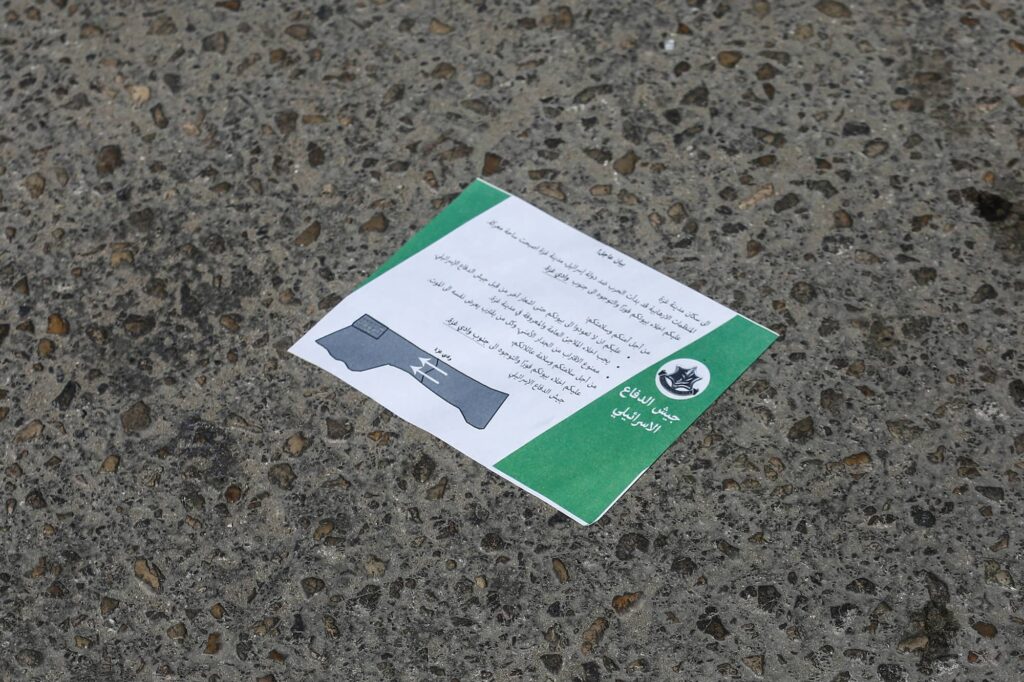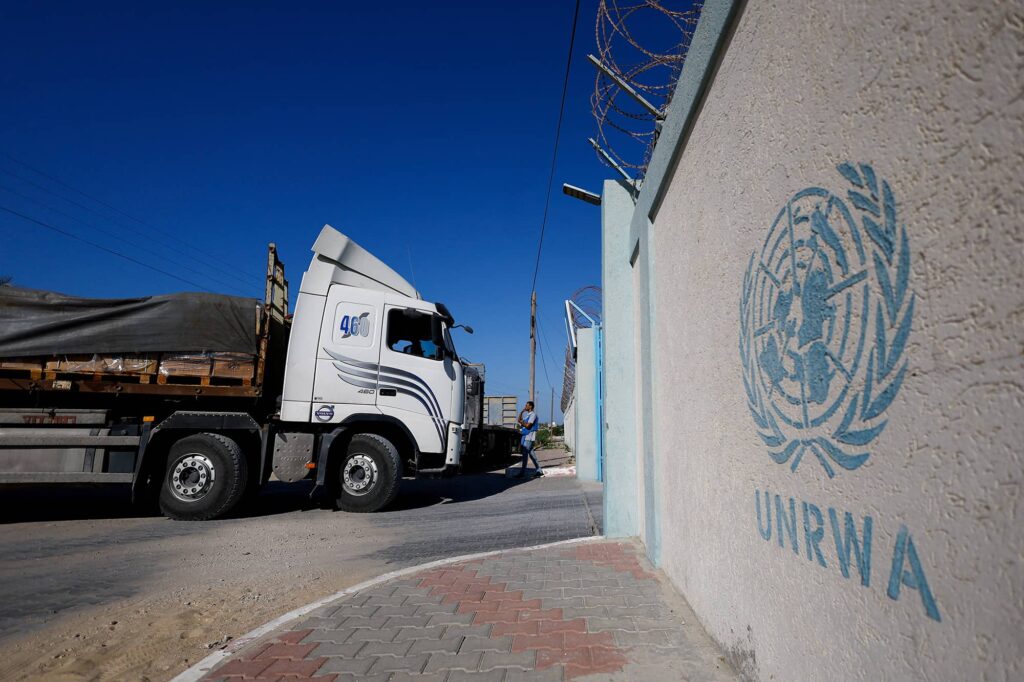The atrocities committed by Hamas against Israeli civilians on October 7 do not exempt Israel from abiding by its own commitments under international law.
Even in a war against a brutal terrorist organization engaged in acts of absolute evil, international humanitarian law still applies. Most of these legal obligations are designed to protect the civilian population – and even the terrorists. After their capture they cannot be subject to retaliation. Revenge is a natural sentiment when facing such barbarity. Nevertheless, retaliation cannot be the purpose of a military operation.
Consistent with Israeli Air Force practice, each target currently being attacked in Gaza is a verified military target, whether it is a pre-planned target based on intelligence gathering, operational research, and legal input, or an immediate (time-sensitive) target identified on the spot, such as a rocket launcher squad or armed operatives.
The foundation upon which international humanitarian law is built is a careful balance between military necessity and humanitarian considerations. Military necessity allows the IDF to attack military targets and military operatives of Hamas and other terrorist organizations in Gaza. The civilian population must not be the object of attack. Nonetheless, it is permitted under international law to attack military targets, even if civilians in the vicinity of the target may be harmed, provided that the expected collateral loss to civilians is not excessive in relation to the anticipated military advantage. In other words, attacking military targets located in a residential area is permitted if it is not expected to be disproportionate.
Furthermore, the military command responsible for planning and executing an attack must take reasonable precautions to spare the civilian population, although the exact nature and extent of the precautions taken are context related. The more vital the military necessity of neutralizing the target, the narrower is the scope of precautions required to protect civilians in the vicinity of the target. However, one precaution that may ease the proportionality dilemma is giving effective advance warning to the civilian population that may be affected by the military offensive.
The reality on the ground in Gaza is that Hamas has located its military infrastructure in densely populated urban areas. Every party to an armed conflict is obliged to move its civilian population away from military infrastructure. Hamas does not violate this duty out of ignorance or neglect; rather, it deliberately locates its military infrastructure in sensitive civilian sites, such as underneath hospitals, using the civilian population as a human shield.
Against this backdrop, Israel’s call for the residents of Gaza City and the surrounding area to distance themselves from the area of an upcoming military operation is allowed under international humanitarian law.
Furthermore, if circumstances permit, such a warning is a duty to allow an orderly evacuation from the expected fighting zone. The IDF informed the population of Gaza city and surrounding towns of the exact routes and hours in which they will have a safe passage (“humanitarian corridors”) to the south. This call for evacuation is, by no means, a “deportation” or a “displacement.” It is temporary, for the civilians’ safety, and they should be allowed back once Hamas is defeated and hostilities end. This warning is something Hamas itself should have done, even as Israel evacuated part of its civilian population from the vicinity of the border. In fact, the Gaza Strip is not a large territory, and the evacuation of so many people to the south of the Strip inevitably strains existing civilian infrastructure, which is already stressed because of the war. However, it is not Israel’s duty to provide accommodation for the evacuating population.

In 2005, Israel disengaged from Gaza, evacuating its military forces and civilian settlements. Since then, Israel is not the occupying force in Gaza. Therefore, it does not have an active duty to supply basic humanitarian needs (electricity, fuel, water, medical supplies) to the population of Gaza – although it had been doing so in the hope, proven false, that this would restrain Hamas.
In 2007, just after the Hamas coup d’etat in Gaza, the Israeli Supreme Court held that Israel cannot immediately and completely cut off electricity and fuel it provides to Gaza, highlighting the total dependency created by 50 years of occupation. Sixteen years later, I doubt if this caveat is still relevant. Hamas, which controls Gaza, chose to invest in rockets and tunnels instead of civilian infrastructure, such as the electricity power grid.
When it comes to the passive duty of allowing neutral third parties to provide humanitarian assistance, the legal status is different. In principle, Israel has a duty to allow third parties to render humanitarian aid. Nonetheless, this duty is subject to two conditions. First, Israel may prescribe technical conditions, such as inspecting the supplies, to ensure that weapons and war materials are not smuggled. Second, Israel may demand that the distribution of the assistance be carried out by a neutral agency. The rationale here is to ensure that humanitarian assistance is not diverted to the military forces of the enemy, e.g., that fuel entering Gaza does not supply Hamas trucks or electric power generators of command-and-control posts.
Given Hamas’s record and priorities, there is a serious reason to doubt whether the second condition can be met and assurances that humanitarian aid entering the Gaza strip would not fall into the hands of Hamas’s military wing can be given.
UNRWA, the UN agency working with Palestinian refugees in Gaza, tweeted that fuel and medical equipment from its compound in Gaza City were taken by “a group of people with trucks purporting to be from the Ministry of Health of the de facto authorities in Gaza”[UN speak for Hamas]. The tweet was quickly deleted.
In practical terms, probably the best solution would be to move the civilian population out of the Gaza City war zone controlled by Hamas and to provide the humanitarian aid there. This has led to Israeli consent to the entry of some supplies from Egypt.

Obviously, a state may do more than what is required by international law for policy reasons. According to reports, Israel agreed to supply some water to the southern areas of the Gaza Strip, where the civilian population is encouraged to go. This may create an incentive for the population to heed the advance warning. Other policy considerations include environmental concerns. For instance, without the water supply from Israel, Gazans may increase pumping from water wells in Gaza. The groundwater level in the coastal aquifer may fall, allowing seawater in and making the water unusable. This aquifer serves both Israel and Gaza. Similarly, without fuel and electricity, sewage treatment facilities in Gaza may stop working, and untreated sewage may pour into the sea and pollute both Gaza’s and Israel’s coasts.
There is one issue at hand where humanitarian obligations are absolute: the taking of civilian hostages is absolutely forbidden and is a war crime. Hamas kidnapped civilians: women and men, children, infants, and elderly people. All must be released immediately and unconditionally. There are serious doubts whether a non-state armed group in a non-international armed conflict may legally, under international law, hold soldiers in captivity. Even those who answer in the affirmative admit that each captured soldier is entitled to be humanely treated, receive medical attention when needed, and be protected from violence, torture, and outrages upon personal dignity. The captive cannot be held incommunicado, access to the representatives of the International Committee of the Red Cross (ICRC) must be given, and correspondence with family members allowed. There is clear evidence that Hamas tramples upon these basic humanitarian obligations now, as it did in the past.
Israel’s Military Advocate General (MAG), assisted by an international law department, advises the IDF on how to deal with these and many other legal issues regarding the war. The MAG is professionally guided by the civilian Attorney General and his staff. They are independent legal officers, subject only to the rule of law.
Another important role of the MAG is law enforcement within the IDF. An illuminating example of the IDF’s values when it comes to human life, even that of an enemy, is the case of Elor Azaria. Azaria was an Israeli soldier who was found guilty of killing a Palestinian assailant who had attacked two IDF soldiers with a knife several minutes earlier. He was indicted because when Azaria shot him, the assailant was already neutralized. In February 2017, Azaria was sentenced to an 18-month prison term. While the IDF punishes soldiers even for killing terrorists after they are neutralized, Hamas takes pride in killing, torturing, raping, mutilating, and kidnapping civilians: women, children, babies, elderly people, and men.
There are voices in Israel, outraged by the horrors of 7 October, who call for indiscriminate action in Gaza. But in the IDF, there is an understanding that fighting while abiding by the law is not a liability but a source of strength.

